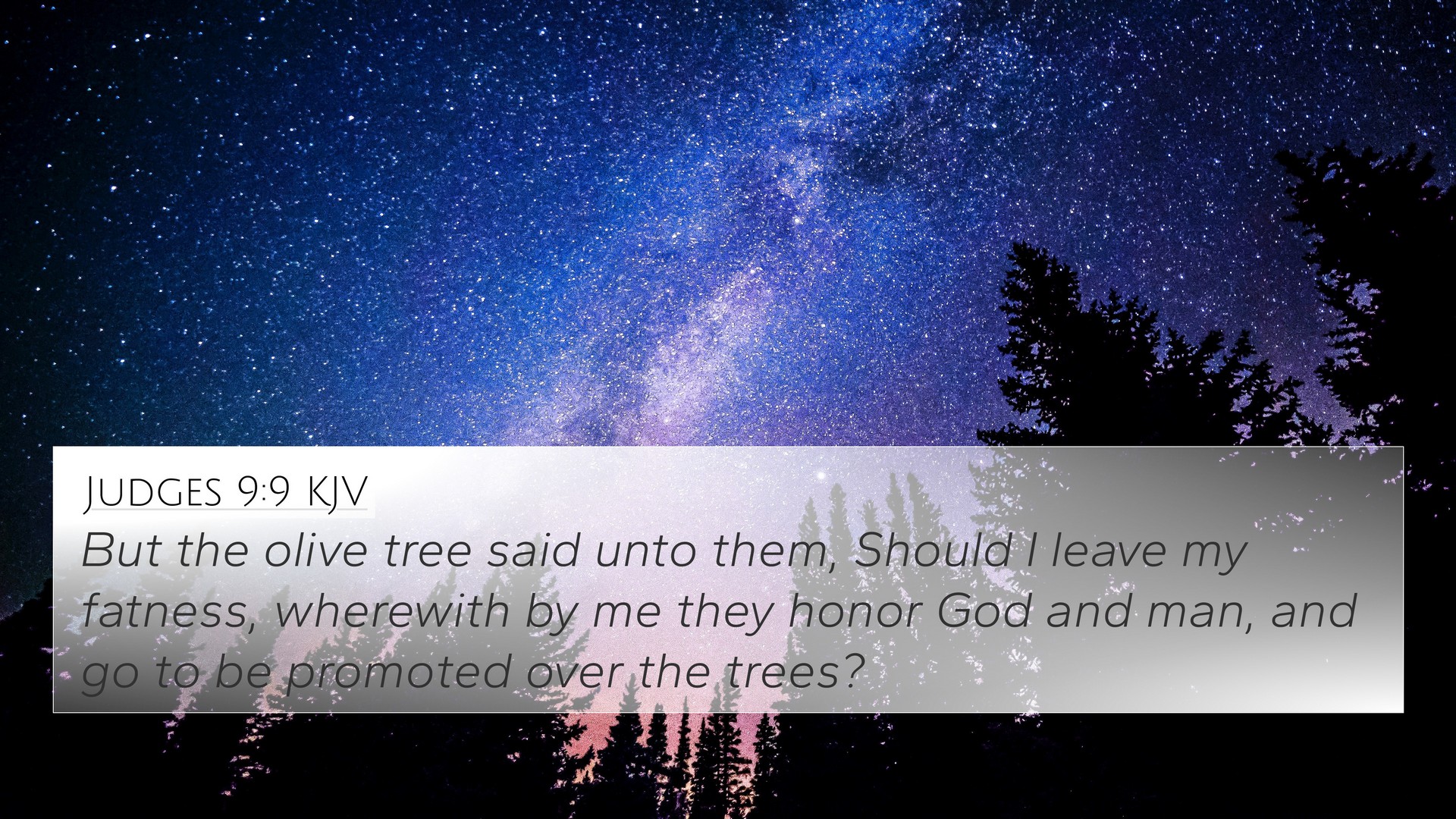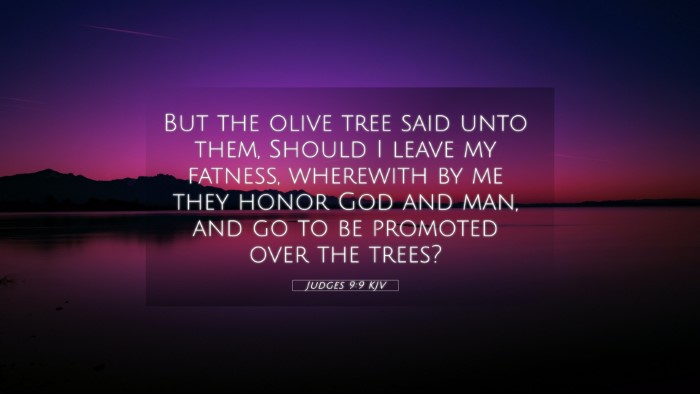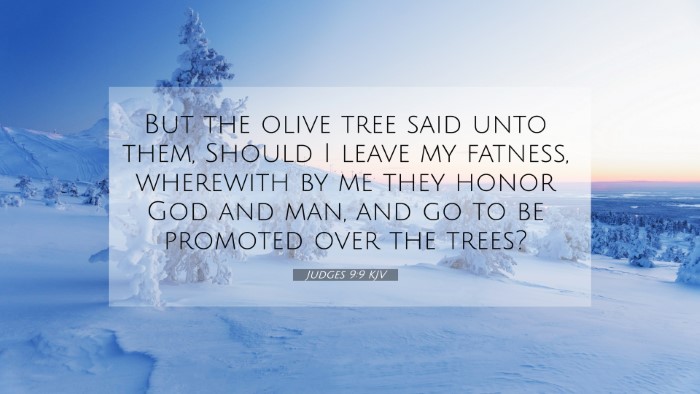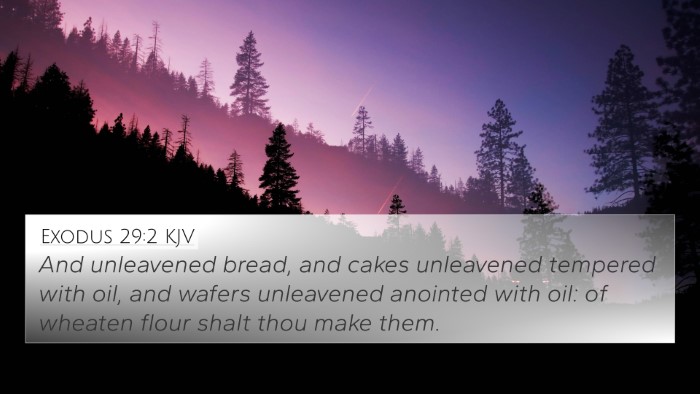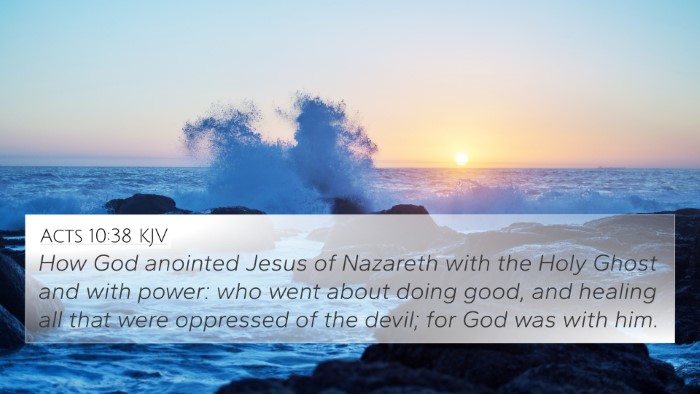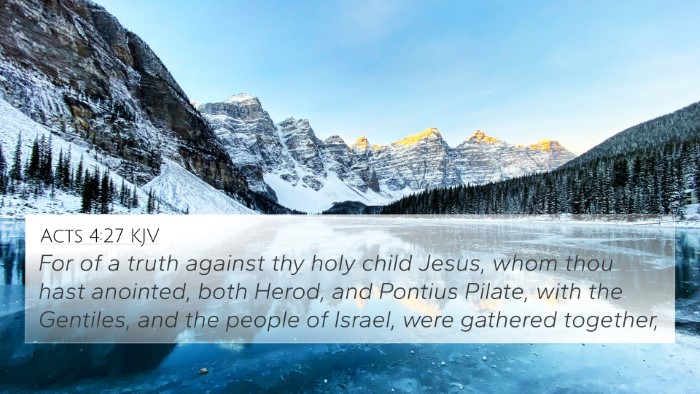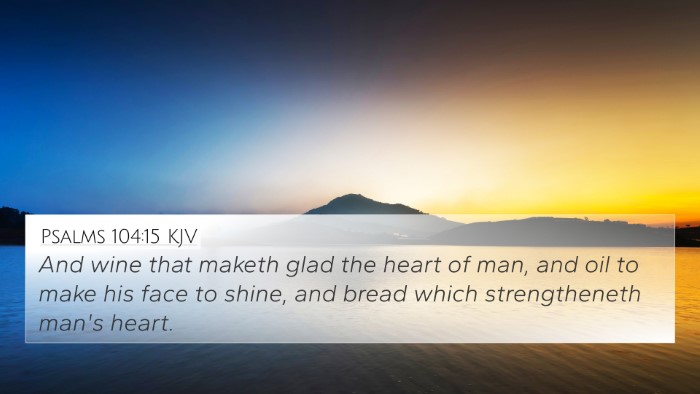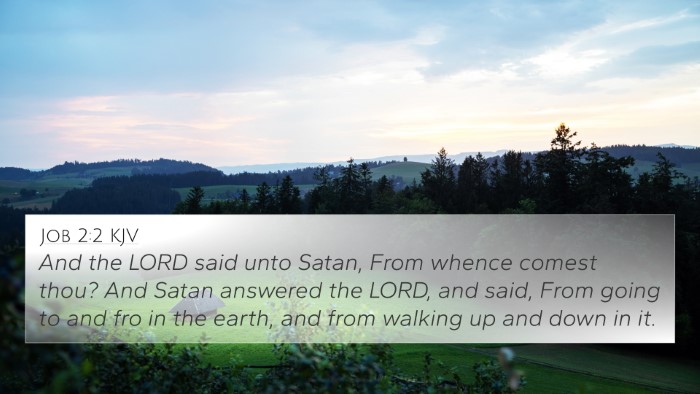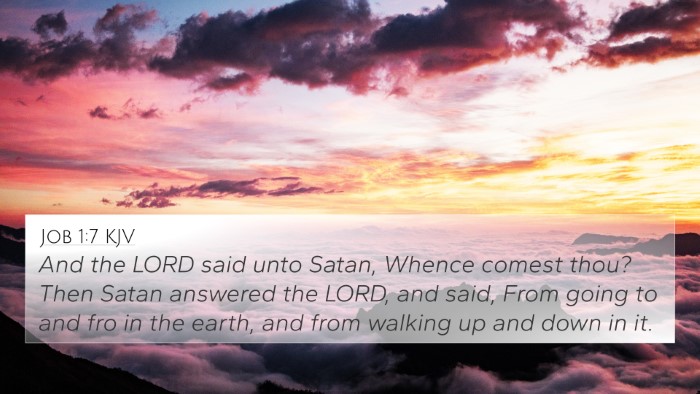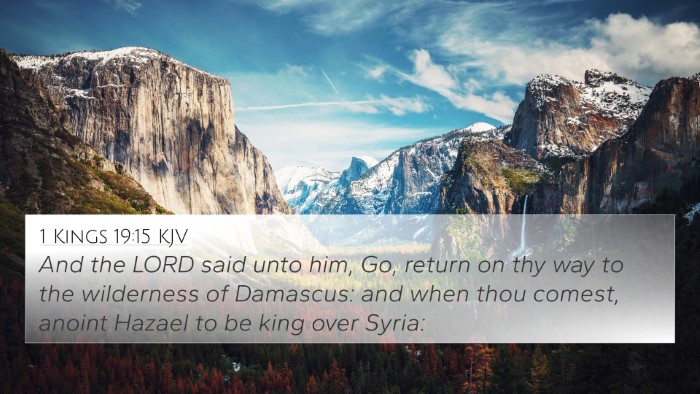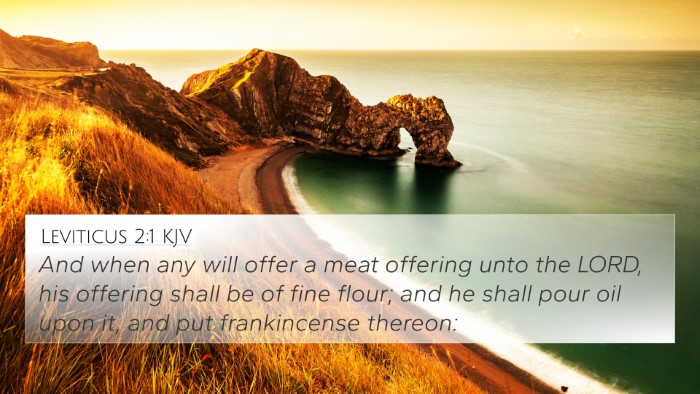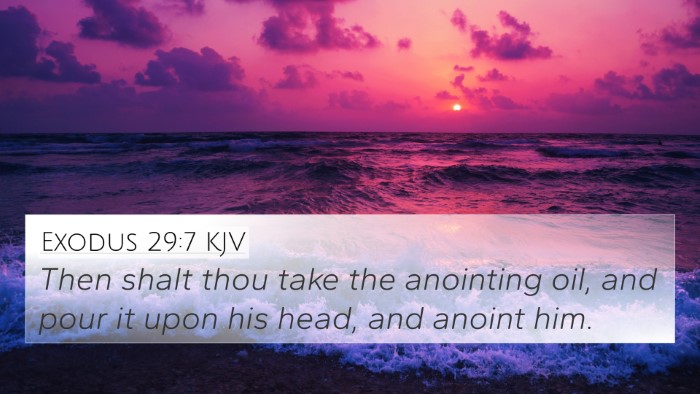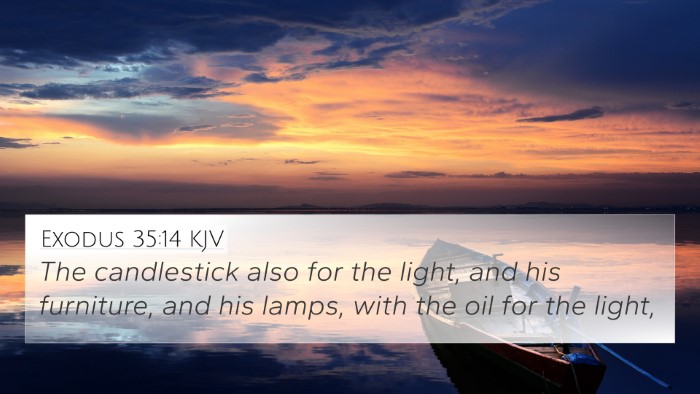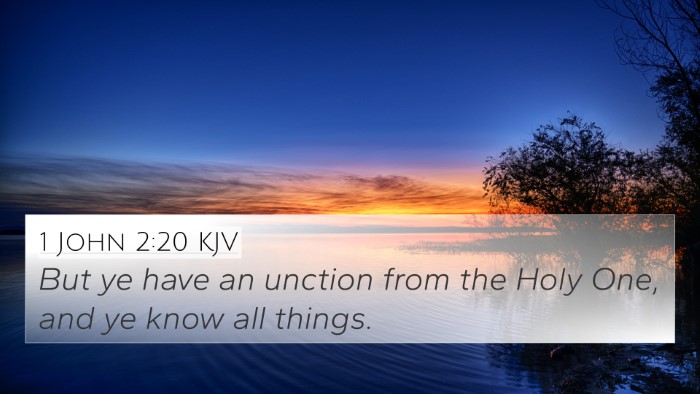Understanding Judges 9:9
Judges 9:9 states: "But the olive tree said to them, 'Should I cease giving my oil, with which they honor God and men, and go to sway over trees?'" This verse illustrates the concept of worthiness and the responsibilities that come with certain roles. The olive tree represents a choice that is often faced: the decision to relinquish one’s beneficial purpose for the sake of power or influence.
Commentary Insights
Drawing insights from public domain commentaries such as those by Matthew Henry, Adam Clarke, and Albert Barnes, we can explore the multifaceted meanings of this verse.
-
Matthew Henry: Henry interprets the olive tree's refusal to abandon its noble work in favor of leadership as a critique of ambition devoid of purpose. He emphasizes that the true worth of a person or institution lies in its service to God and humanity, rather than in its pursuit of power.
-
Albert Barnes: Barnes notes the olive tree's virtue in producing oil—a sacred asset. He connects this to the overarching theme of divine providence and the importance of fulfilling one’s potential in service rather than seeking domination. The symbolic use of trees further illustrates the consequences of poor leadership choices.
-
Adam Clarke: Clarke points out that the olive tree's response reflects the significance of humility and service. The trees' request for a king signifies the folly of seeking authority without the necessary qualifications, making a compelling parallel to the governance in Israel made during that era.
Thematic Connections
This verse connects with various themes throughout Scripture, informing a deeper understanding of leadership, service, and humility. The call of the olive tree highlights the importance of being true to one’s purpose.
Cross-referenced Biblical Texts
Here are several Bible cross-references that relate to Judges 9:9:
- Matthew 20:26-28 - Jesus teaches that greatness in His kingdom is found in serving others.
- 1 Corinthians 12:27-31 - Paul discusses the different roles within the body of Christ, emphasizing the importance of each member's function.
- Mark 10:42-45 - A parallel passage to Matthew where Jesus elaborates on servant leadership.
- 1 Samuel 8:5-7 - Refers to the Israelites demanding a king as a reflection of their desire for human leadership over God's direction.
- Micah 6:8 - Highlights what God requires of His people: to act justly, love mercy, and walk humbly with Him.
- Luke 14:11 - Those who exalt themselves will be humbled, emphasizing the value of humility.
- Philippians 2:3-4 - Encourages believers to look not only to their own interests but also to the interests of others.
Connections Between Biblical Themes
The narrative framework of Judges 9:9 elucidates the broader biblical discussion regarding the tension between servitude and authority. The olive tree's reluctance provides an invaluable perspective on what it means to lead. It highlights the overarching motif found throughout the Bible regarding the necessity of aligning authority with responsibility and moral integrity.
Exploring the Importance of Purpose
The olive tree symbolizes purpose and value. Its refusal to give up what it provides speaks volumes about the careful consideration needed when faced with choices that may lead one away from fulfilling their divinely appointed roles.
How to Use Bible Cross-references
Utilizing cross-references can greatly enhance Bible study by allowing individuals to see themes and messages that span the entirety of Scripture. For those interested in in-depth Bible study:
- Consult a Bible concordance to locate related verses.
- Create a Bible cross-reference guide to visualize connections.
- Explore thematic studies focusing on specific narratives or teachings from the Bible.
- Engage in cross-reference Bible studies that focus on comparing passages from different parts of the Bible.
- Utilize tools for Bible cross-referencing to draw parallels between various scriptures.
Conclusion
The exploration of Judges 9:9 invites us to reflect on our own roles and responsibilities within the framework of faith. By examining the refusal of the olive tree to abandon its purpose, we are challenged to consider what it means to serve meaningfully within God’s creation. Through cross-referencing this verse with others, we can appreciate the intricate relationships that define scriptural understanding, offering a rich resource for deeper theological study and practical application.
